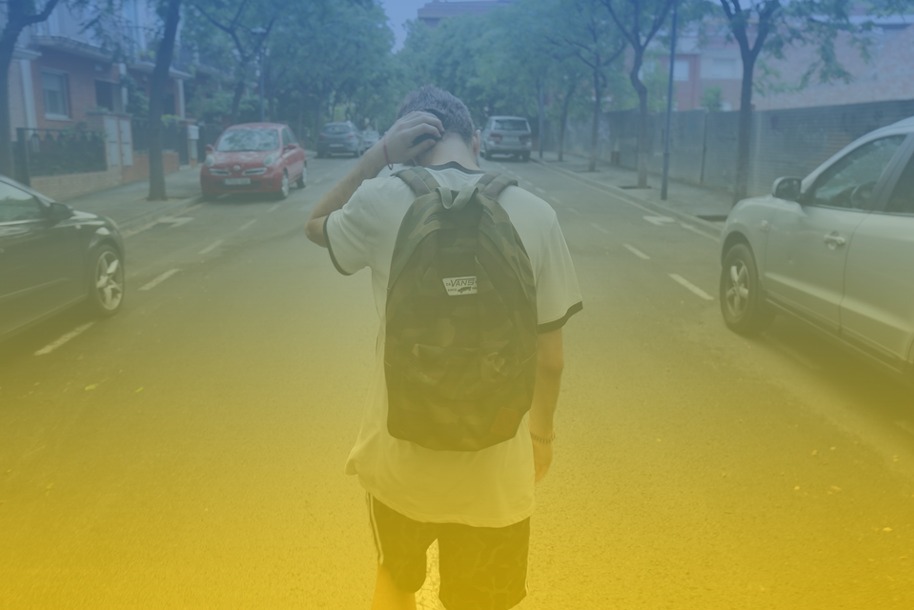
While it’s easy to dismiss teenage worries like crushes, homework, and whether or not the coach will have them start the big game, genuine stress is very much a part of the teen experience. As a parent or someone who works closely with teenagers, it’s important to teach them healthy coping skills.
Regardless of how you feel about the factors causing your teenager’s stress, there’s no doubt they’re going through it. Far from just an adult problem, young people deal with stress related to school, current events, and the future. Without healthy coping skills, that stress can turn into something more serious. If it isn’t managed properly, stress can lead to unsafe behaviors, unpredictable bursts of anger, and prolonged mental duress.
Because you care about your teenagers, you want to be supportive and help them develop healthy coping skills that will serve them both today and in the future. This is no small responsibility so don’t feel like you have to take it on alone. In addition to how you can teach your teens healthy coping skills, you will learn who you can turn to for help in the process.
How to Teach Your Teenagers Healthy Coping Skills
Even if your teen learned healthy coping skills as a child, there’s a chance those same methods might no longer work as they near young adulthood. A good place to start is by helping them identify their feelings. Understand that your teen might not know how they feel. Even if they do, it could be difficult for them to put it into words. If your teenager is unable to articulate their feelings (this is especially in the heat of the moment), offer them words. At the same time, let them know it is completely normal to feel angry, sad, or frustrated at times.
Once you’ve identified how they’re feeling, ask what they think caused it. Doing so could help your teen to see the situation from a different angle or better understand what occurred. From there, you can figure out what helps them feel better. Begin with their interests, hobbies and favorite things to do. Don’t overlook the basics since even something simple like getting a better night’s sleep can help a person cope with feelings of anxiety. The result might sound something like this: “When I’m feeling anxious about a big test, I’ll shoot hoops in the driveway.”
You should strive to teach your teenager a variety of healthy coping skills. Think of the skills in terms of these four categories: calming, distraction, physical, and processing. Encourage your teen to try new coping skills like writing in a diary or deep breathing. They should try these new skills when they’re feeling calm and relaxed to practice. Every coping skill isn’t the right strategy for every teen, but they should test it out a few times before moving on to something else. You and your teen can also investigate natural remedies like CBD, which is sometimes effective in reducing anxiety depending on a number of factors.
Setting Your Teen Up for Future Success
Taking the time to teach your teenagers healthy coping skills today is vital for their future success. As they grow into adulthood, they will continue to deal with everyday challenges. In fact, some of those challenges are likely to be more difficult, and failure to cope with the subsequent stress appropriately could have higher consequences.
For example, adults who react to stress in unpredictable or even explosive ways will have trouble maintaining relationships and advancing in their careers. More seriously, mismanaged stress could result in dangerous behaviors such as road rage.
Additionally, when you devote your full attention to helping your teenager learn healthy coping skills today, you are validating them and their feelings. It’s an opportunity to reinforce the belief that they are worthy of being understood. Just like talking to a loved one with mental health issues, focus on the positives, and refrain from minimizing. They will carry positive affirmations into adulthood.
Getting Teachers and School Counselors Involved
As a parent, perhaps you want to take sole responsibility for teaching your teenagers healthy coping skills. However, that’s not always what is best for your teen. Remember that a significant part of your teenager’s life happens in school. You might not want to admit it, but there could be facets of your teen’s personality that you don’t know. For a well-rounded approach, especially if your teenager is struggling, think about involving teachers and school counselors.
School staff might discover a coping skill that works in that particular environment. You might guide your teen in finding another coping skill that is better suited for at home. When you are all working together, it improves your chances of identifying coping skills your teen can use. If your teen continues to struggle, you should consider consulting a therapist. This is also an opportunity to show your teenager that it is okay to ask for help. Seeking advice when you need it is a healthy coping strategy.
Don’t hesitate to schedule an appointment with a therapist if your teenager expresses feelings that sounds like depression, or if he is exhibiting symptoms. Therapists can teach clients self-regulation techniques as well as strategies for how to practice self-awareness.
If you’re feeling overwhelmed at the idea of teaching your teenagers healthy coping skills, know that you don’t have to do it alone. When it’s challenging to talk to your teen, remember that the coping skills you teach them today will help them grow into successful and well-adjusted adults.
Guest post by Luke Smith
Tags: addiction recovery, behavioral health, coping skills, crossroads health, Crossroads Health Ohio, Crossroads of Lake County, healthy coping, lake county, mental health, mental health awareness, mental health treatment, youth mental health

